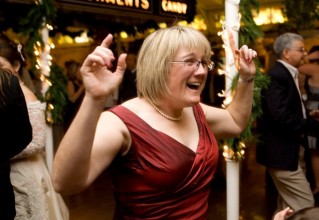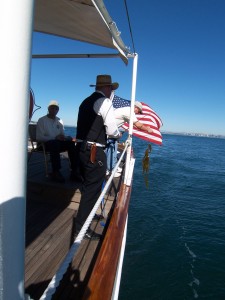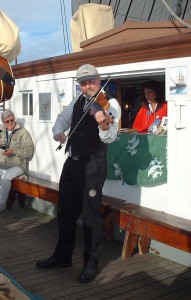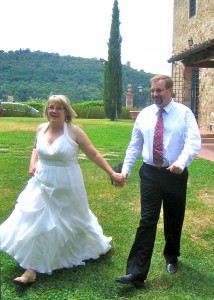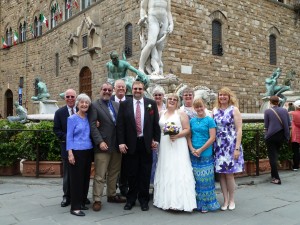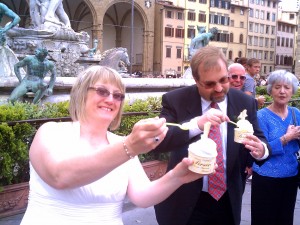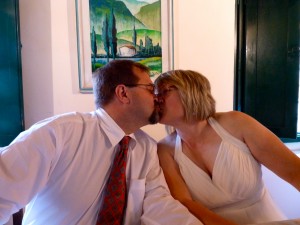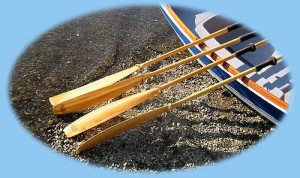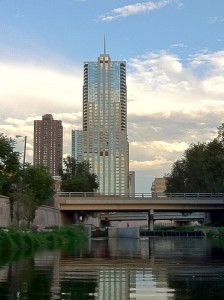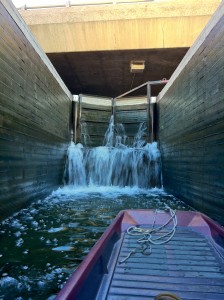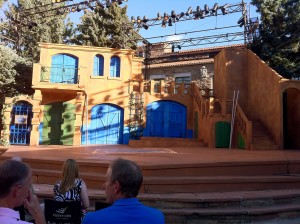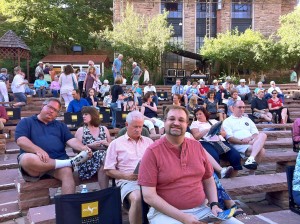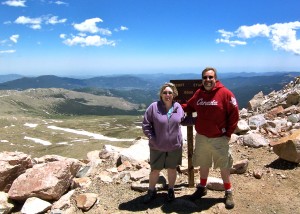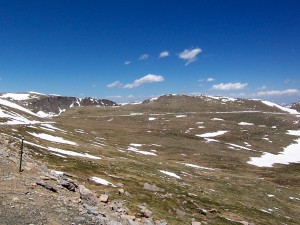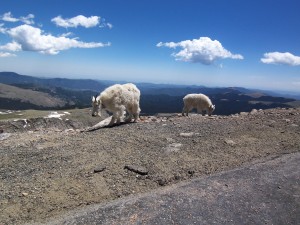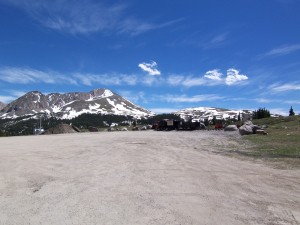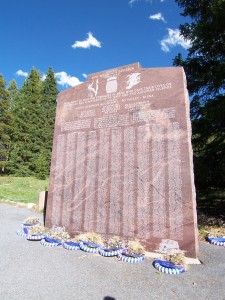In honor of the 80th Anniversary of the Attack on Pearl Harbor, I have attached a piece my father wrote back in the late 1970s about his life during the Second World War. I did the transcription and made a few small edits. Please let me know if you find typos, I’m still making corrections.
All This And World War, Too
By George E Oswell
Everyone who was around at the time remembers December 7, 1941. For those too young to remember what till then had been called The World War, war for the first time ceased to be an abstraction. Till then all we had heard about on the radio and seen in the newsreels was happening to them, now was about to happen to us. There had been Spain, which brought the newsreel pictures of people scattering in the streets under the Luftwaffe, China, with the mourning women and dead children’s bodies, and the Fins, with their valiant struggle in the snow against the Russian chronicled every evening on the news by Elmer Davis. We stood by like spectators at some deadly game cheering our valiant but losing team. Europe, except tough little England, had quickly folded before the evil forces and there was an unspoken certainty that our turn was soon to come. And here it was.
To an 11-year-old, such as myself, it had a terrifying inevitability which mixed uneasily with oncoming adulthood. It appeared that my maturation and history were combined so that the battlefield would be ready for my arrival into proper age for mobilization. I also felt of myself that I was one of those would be too terrified on the battlefield to survive and too afraid of my own cowardice not to go.
But it came anyway. I can remember that day, as can most, very vividly. My parents, my brother and I lived in a house less than two years old in West Los Angeles. That Sunday morning after Sunday School I had to quickly changed my clothes and walked two blocks, across Santa Monica Blvd. and the Pacific Electric tracks to the Santa Glen Drug Store to buy a magazine for which I had saved my allowance for some time. It was not a regular periodical but one of those special magazines that came out once or twice a year and was called Air Progress. It had pictures, in color, of all the latest military airplanes. I had thumbed through it thoroughly many times anticipating the day that I would have the necessary funds for its purchase.
When I returned home and crashed back door on the run, ready to show all who were willing to look my new acquisition, my parents were in the kitchen listening with the adult seriousness which demanded silence to the small brown plastic Emerson radio with its 4 push buttons that sat on the sink by the gas range. Thirty seconds of listening and it was obvious even to an 11-year-old that the war had finally come to Pandora Ave., #1849.
The war, in reality, had a little direct on my life except for kind of dull fear at night, often in the first early weeks made more than dull by the blackouts, supposed Japanese submarine bombardments of our coast in the news, and some of the other war preparations that became apparent. I have no other than my own experience to go by of course, but it has always seemed to me that those of us on the West Coast felt more directly endangered by the war than any of the rest of the country. Hawaii, where the first attack had occurred, seemed rather close and furthermore not unlikely to be just a stop off on the way to us. Some said it was only the War Department’s way of enhancing our war readiness but still the papers said Japanese submarines had fired on our coast near Santa Barbara. There were anti-aircraft batteries setting up around our area including those gigantic listening devices. Many, many planes came and went from the Douglas Aircraft plant just a few miles from us. In school we had weekly air raid drills. Everyone was instructed to make air raid curtains. Streetlights and lighted signs were turned out and headlights on cars partially painted over. The sudden removal of all the Japanese occurred with the attendant signs explaining the act hung on lamp posts and telephone poles. Whatever its implication for civil liberties the evacuation of the Japanese added to the sense of siege.
All this together with the pictures from magazines and newsreels of European air-raids which were vivid in my mind made the blackouts very frightening. When the sirens wailed and we pulled the curtains and all sat in the den with one light
, in my mind the whole Japanese Air Force appeared overhead. Never mind regaling me with the facts. I knew Japan was a long way away. I knew refueling was impossible all the way across the Pacific. I didn’t know how they had done it, but I was sure tonight they have somehow accomplished the feat and furthermore had all congregated over our house! I have often wondered to what extent bravery can be attributed to a lack of imagination. No matter the seriousness of the situation, looking back now it was not without its ludicrous aspects.
Other than the beginning itself, probably my most important remembrance of the early days of the war was the night of the great Los Angeles Air-Raid of January 1942. I am both glad and sorry to report that I slept through the “raid” itself. I am glad because had I heard the guns and seen the searchlights, I’m not quite sure what my reaction might have been considering the near hysteria that blackouts inspired in me. Still, it would have been interesting to have seen what actually went on.
My first experience of the event was when I got up in the darkness awakened apparently by nature’s call. It seems especially dark in the room and so for no particular reason, I went to the window and parted the Venetian blinds to lookout.
“Close those blinds,” my father called from his bed.
“What, uh, why? I…” said I.
“Close the blinds!” My father repeated.
“They’re closed. I just was…”
“We’re having a blackout! Keep them close!”
I suppose my father was afraid I would open the blind and turn on a light thus letting the light out. As a matter of fact, however, the effect of the closed blinds was you keep any light from getting in. The frightening effect of the news of a blackout was enough to help me speedily accomplish what I had gotten up for and return groping to my bed where after a few minutes laying with that lump of fear in my stomach I fell back to sleep.
It never has been completely explained what went on that night among the forces protecting Los Angeles, but in our house the next morning there was no doubt that we have been attacked.[1] My parents had been awakened by the sirens, soon followed by the thump of the anti-aircraft guns. I imagine what it must’ve felt like for all that within hearing distance of those guns that night. It is probably a sound they’ve never forgotten, false alarm or no. We had been in a heightened state of expectation for about six weeks. There had been blackouts where we sat with our one small lamp and the blackout curtains pulled, radio silent, with two or three neighbors running up and down the street checking for chinks of light. News in the papers of ‘the Japs’ (they ceased being the Japanese as of December 7, 1941) overrunning Pacific. Newspapers full of instructions for quelling incendiary bombs. School drills in which the children all got under their desks and put their heads between their legs. The thump of those guns would have been exactly what everyone expected. Dreaded, but expected.
At any rate when the guns went off, I suppose my father felt he should do something. Even if it was only watch. Mother on the other hand was not about to do anything. It was a very cold (for LA) January night and as she later said she wasn’t going to leave her warm bed for “the whole Japanese Air Force.” I also imagine there was a touch of “If I’m very very quiet and go back to sleep maybe it will all go away” in her stance.
Dad, cold or no cold, had to see what was as going on. Never one to over dress, he simply jumped out of bed in his pajamas and bare feet and went out on to the front porch. Our house sat on top of a bank and the porch would’ve been perhaps 15 feet above street level. The houses across the street were at street level, so the view was good. As Dad told us the next morning, the scene was around a bit to the north and since the porch faced east, he stepped around on a little patch of grass in front of the porch to see around a Cedar tree that had recently planted beside the porch. The grass was dewy adding a bit to the chill, but the view was good.
“There were 4 or 5 search light beams and after some moving around the sky, they converged on what seemed to be something or other in the sky. It was moving slowly through the sky and there was this thumping of the guns and I guess they were shooting at it. A plane, I guess. Anyhow, they… the search lights…would lose it and find it and…I don’t know how long I watched but I finally got very cold. I mean cold. I went back up on the porch to come in and I don’t know how, the wind I guess but…”
At this point mother took over the narrative. “I just finally got to warm and comfortable after him having gotten out of bed. I was almost asleep, and I heard – tap, tap, tap, ‘Dear,’ tap, tap, tap, ‘Dear,’ in this whispering, kind of pleading voice. Well
, you know how that front door always blows shut. My first thought was to leave him there.” She looked at Dad mock angry. “But…anyhow, I had to get out of my nice warm bed and let him in. He was practically blue. Nothing but his pajamas. We got into bed and his teeth were almost chattering while he told me about what he had seen. In about five or minutes he was asleep, and I must have been an hour getting warm enough to go back to sleep.”
I’m sure that your stories were told all over the city that morning. There were bulletins on the radio of reported planes shot down. They all proved to be untrue. No one ever explained what it was, but it wasn’t the Japanese. Perhaps I wasn’t the only Los Angelino with vivid imagination.
The air-raid alerts at school all tended to become a bit of a lark. They would start out serious enough but if they went on for any time, they became more and more difficult for the teachers to control. After a few months someone apparently decided that sitting under the desks was less protection than sitting in the hallways. This greatly added to the difficulty of the teachers. I particularly remember one very long session when I was a seventh grader in Ralph Waldo Emerson Junior High. It must have gone on for two hours and by the “All Clear” I’m sure the teachers would have gladly turned the entire student body over to the Emperor’s forces. It was during this particular “raid” that my mother was visiting her closest friend and saw an example of the home forces in action.
Julie, mother’s friend, was a very plainspoken woman. She said what she thought in no uncertain terms. She also was an air-raid warden and that day as soon as the sirens wailed, she was out on her rounds with helmet and arm band. A block from her home was a school and for some reason at least part of the student body was out on the playground. Julie swung into action herding them into the building and collecting the balls and bats to facilitate movement. The teachers had not moved quickly enough in Julie’s opinion collecting their charges and were given verbal notice of their shortcoming on the step at full volume. Furthermore, a full report on the incident was sent up the chain of command. War in our sector was a serious business.
One other alert stands out in my memory. We were at the First Baptist Church attending a performance of “The Messiah” in which a friend of my parents was singing. When the last note was sung, the preacher stepped to the pulpit and informed us that an alert was in progress (apparently the singing had muffled sirens) and that we should stay in our places. I remember the feeling of relative safety as the chorus and congregation joined us in singing hymns. God wouldn’t allow a bomb to hit a church. Would He?
The main direct effect the war had, of course, other than the loss family members and friends to fight it, were the shortages and collection drives. The shortages mainly affected me as one sent with coupons in hand to stand in line and wait to get meat or sugar or sometimes for a good box of chocolates at See’s for my mother or cigarettes for my father. Gasoline being short we drove the car a bit less, but this wasn’t too noticeable as the cost of gasoline and the effects of the Depression had already combined to make us good walkers. Los Angeles is thought of as an automobile centered city and it is. It always was a place of great distances after the war, particularly with the coming of the freeways, that he took on his present character. Los Angeles is thought of as an automobile centered city, and it is. It always was a place of great distances, but it was after the war, particularly with the coming of the freeways, that it took on its present character. Until the war, it had a moderately good public transportation system with the Pacific Electric and 2 or 3 other bus lines, and people walked within their communities about as much as any city in the country.
The collection drives were the chance for us, particularly the children and adolescents, to really feel part of the effort. Whether the psychological effect was or wasn’t the point of the exercise I’m not sure. I have heard great fortunes were made by some as an outcome of some of the scrap drives. Still, we were a not so cynical population then and we at least felt our efforts were of use. We collected newspapers (a twice a year affair at all the schools and the best time available for the boys to build their supply of comic books and the salacious ‘Esquire’), old tires for recapping and fat drippings. The most memorable collections of the war to me however were the metal collections. We had one collection in junior high which filled half the school yard. The first day of the drive I pushed a tire rim of a car I had found hoop-like the mile and a half to school. That evening on the way home I passed some of my school mates disassembling an old car they found in an empty lot next to a gas station. The gas station was even supplying some of the tools for the job! I joined in. The next day I carried a bumper and the following day a trunk lid to school. Points were awarded by the pound and according to your points you were assignment military ranks. I still have the certificate proclaiming me a four-star general in the Ralph Waldo Emerson Junior High School scrap metal drive. Nevertheless, I and all my schoolmates were pikers compared to the drive champion.
My school served an area which included that richest of Los Angeles suburbs, Bel Air. One of the members of our student body from that favored neighborhood had found a train engine probably from a mining operation rusting slowly away in some remote canyon and his father paid to have it delivered. They, of course, took it directly to the scrap yard so it never did get on campus. However, guess whose picture got in the paper next to what piece of scrap metal?
Another sort of collection which was constantly going on during the war was what might be called the money collection – the War Bonds and War Stamps drives. Emerson Junior High being a part of the city where many Movie people and Radio people lived, we often had them around to decorate the scene of some sort of rally or another, especially the Bond and Stamp rallies. (It must be remembered that in those less affluent times besides bonds at $18.75 and up, one could by stamps for little as 10 cents and collect them in a book). I well remember the day when all the female portion of the school was aflutter over a young Air Force lieutenant who was to be on the girls’ athletic field all afternoon giving jeep rides three-at-a-time to all who bought a prescribed amount of War Stamps. Teenybopper adulation was not born with the Beatles. This young man had some success in Hollywood. Principally, as I recall, in a movie where he was instrumental in saving the Dead-End Kids from a life of crime. Ronald Reagan was his name, and that day War Stamps was his game.
Other than the first day of the war and the last, June 6, 1944, stands out as the day most remembered by most on the home front in World War II. D-Day came very close to the end of the school year as we all looked forward to vacation for the summer. It was certainly not a big surprise. Everyone knew that the Allies eventually had to cross the channel for the reconquest of Europe. There had been large landings in Sicily and Italy but the Big one had to come. I remember a strong sense that might not succeed. For two or three days the issue was in doubt and there was much talk at the dinner table and in school of what it must be like to walk up a beach with nothing but a rifle in your hand against artillery and emplacements bristling with machine guns. It replaced the heroic efforts of the Marines on the islands of the Pacific in our thoughts. When it became apparent that the landing was successful it was just another example to us the righteousness of our cause. The ambiguities of feelings about war had not touched this country out in those times. The War was a great allegory wherein the peaceful forces of righteousness pressed into battle had studied war, armed themselves, fought valiantly and overwhelmed of the war-like forces of evil. The lesson learned would take some time unlearning.
During the war many cherished traditions had to be set aside. In some families where working wives had been an anathema, a sort of admission of the failure of masculinity – women were working. It was not for the money of course but for the war effort. Public displays of affection became more acceptable. Men going into the service were not to be denied a last kiss. Mothers wanted that one more hug. Servicemen on an eight-hour, once a week past might be a bit more quick to put their arm around a girl than they had been at home.
In our home, one tradition which went was the rule against movies on Sunday. My father took a four hour a night job at Douglas Aircraft in addition to his regular job as an insurance claims examiner. He wanted to do something for the effort and was a few years over service age. It meant that he came home every evening, ate dinner, picked up his toolbox and went to Douglas till midnight. Since in those days he worked at his regular job half day on Saturday, the only possible time we might see a movie was a Sunday Matinee. We were not a terribly religious family, but it always been understood that there were six other days for movies. Sunday was for Sunday School, chores, family and friends
, and such. Movies have always seemed to me to have a slightly sordid reputation in our society. They were form of entertainment one enjoys and even does quite often but, perhaps because their viewing was so effortless, they were considered slightly sinful and wasteful of time. Today TV has taken some of this burden. At any rate, Sunday movies in our house at always been forbidden – till the War.
One particular movie I remember during this period is memorable mainly for the circumstance in which we saw it. We decided to go to ‘the show’ later than usual and so arrived late. The theater was in Beverly Hills, perhaps 30 minutes from where we lived, and furthermore there was a line at the box office when we arrived. Probably my parents would have abandoned the whole thing if they’d not had my brother and I there pleading to go. It soon became apparent after we finally did get in the theater that we didn’t have time to see the whole show and have dinner and get Dad off to work in time. The movie was called ”Sahara” and it starred Humphrey Bogart as the leader of a tank crew that somehow got lost from their group in the dry wastes of the Sahara Desert. We thirstily followed their adventures in the sands until the point where they captured in German officer who knew the way out of the desert (I believe he had been a pilot downed strafing them). The tank crew put on a show having plenty of water found in what we all knew it was a virtually dry well refusing the German water till he divulged the route to safety. He licked his cracked lips while Humphrey Bogart nonchalantly poured the precious liquid on the sand, grimacing and working his mouth in that Bogartian way. It was at that precise moment that my father arose and said, “Come on, we’ve got to go” and we left the theater. It was not until fifteen years later when I stayed up until 2 AM one night to watch the late, late show on TV, that I saw the outcome of that scene and the rest of the movie. For many years it was standing joke within the family to wonder whether “Bogey got out of the desert.”
V-E Day did not have much meaning as I recall it. To individual families with sons or fathers in the European theater it seemed to be the end of danger even though they were not sure that their loved ones would not simply be moved to the new front. To most of us not directly involved, it just seemed like end of one chapter. VJ Day was a different story – it was the end of it all.
I had a summer job at the JC Penney store in Westwood Village. It was a janitor’s job glorified by the title “Stock Boy.” For 50¢ an hour I washed windows, removed gum from the floor with a putty knife, cleaned restrooms, emptied trash barrels, vacuumed carpet, swept floors, carried large boxes, and occasionally marked prices on merchandise. I had had other jobs before as a handyman in a small hotel, gardening, running errands etc., but this was, at 15, my first job with a regular pay envelope where I worked a regular eight-hour day. For days before the final Japanese capitulation, the papers are full of stories of the new “secret weapon” the A-bomb and the expectations of Japanese surrender brought on by its devastating effects. Until this new weapon, it has been expected that it was only a matter of time till victory – still, there seemed to be great battles to come particularly invading Japan.
When word came that August day, I was on top of the tall ladder in the basement sewing department hanging a light bulb in an overhead fixture. The Store Manager came down the stairs proclaiming, “The war is over; we’re closing.”
I came down the ladder leaving the old bulb and the new one side-by-side and the large glass globe all precariously on top, went up the stairs and out into the street, and thus they stayed till I returned two days later. Almost every store in the Westwood village closed just as we had. About all that remined open that night and the next day was liquor stores and churches.
Great crowds gathered in Hollywood, downtown LA, and other places around town, and firecrackers could be heard throughout the night. All these things were in the papers that night. There were photographs of sailors with bottles kissing girls, people filling their gas tanks to overflowing, mothers on church steps and at prayer in churches, and politicians congratulating Generals. We felt some sort of celebration was in order, so we did what for us was the big evening – we went to a movie.
Dad was keeping a car at our house for a vacationing friend in the office. It was an elderly Chevrolet Coupe, bright yellow, with a rumble seat and a full tank of gas. We persuaded Dad that it was just the thing to take that night. I remember that warm summer evening riding through the streets of Los Angeles to and from the theater shouting with my brother at people we passed on the street giving a victory sign and receiving it in turn.
Never since have we had quite the sense of exhilaration which was felt by the American people for those first few months after the end of the war. We were a righteous people and the right had prevailed. We had won and piece had come and now we could all live happily ever after.
[1] It has since, but had not been completely divulged at the time George originally wrote this piece.
{ 0 comments }

